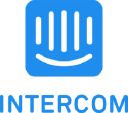How We Got 800K Sign-Ups On Our Collaboration Tool Without Spending On Advertising
I’m Jamie Hanratty, co-founder of Metro Retro, along with Steve Whitfield and Lisa Angel.
Metro Retro is an online whiteboard designed for the meetings and workshops that software teams run. Where other collaboration tools are boring and require training, Metro Retro is fun to use and simple to pick up. It has all the tools you need in an online whiteboard like sticky notes and images, but it also has fun, interactive features that people love, like the confetti cannon for firing confetti streams across the board.
Most people use Metro Retro for its Retrospective meeting formats or “Retros” (hence the name). A Retrospective is a particular type of meeting that agile software teams hold, where a team gets together to reflect on what happened recently, how they’ve been working, and what they could improve in the future.
Our view is that if your team looks forward to and enjoys your meetings, this improves engagement and the effectiveness of your time together. So we get to build fun and silly features that probably wouldn't be appropriate for your accounting tool, but in our case it's perfect.
To date, Metro Retro has had over 800,000 signups without us spending a penny on advertising. Our signups first exploded over the...



























